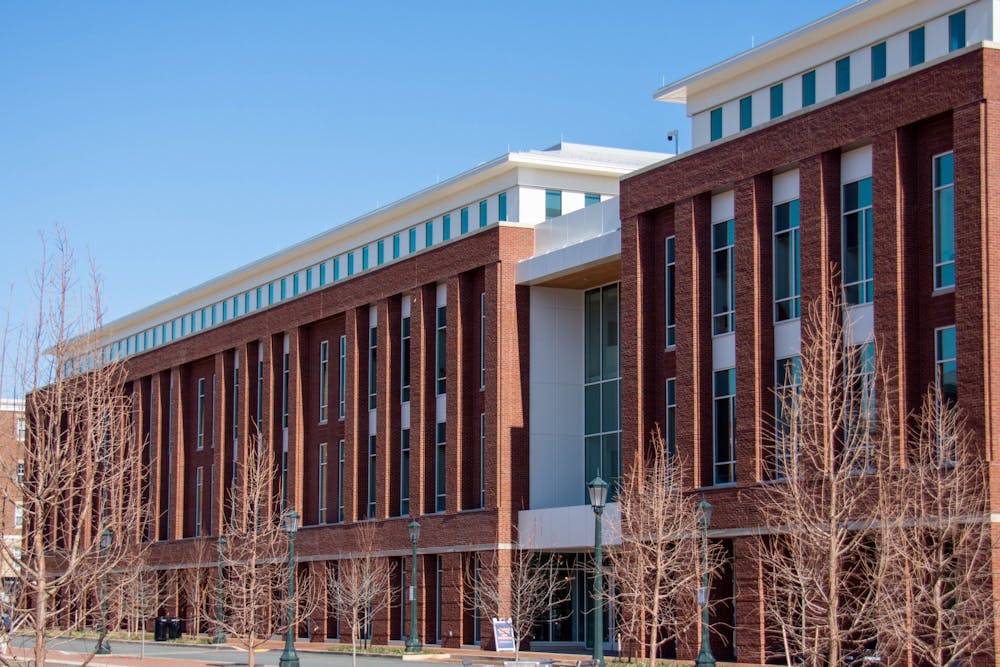Mental health services at the University have historically been offered primarily through Counseling and Psychological Services, often receiving mixed reviews from students. In conversations with The Cavalier Daily, students expressed appreciation for more recent efforts taken to improve accessibility, citing positive experiences with TimelyCare, a virtual telehealth service. Concerns about long waitlist times remain, however.
University students continually experience stressors that place a burden on their mental well being. Previously, students and groups have advocated for the University to increase the breadth and effectiveness of services offered to students, including expanding the number of free visits allowed per students and endowing counselors who specialize in providing services to victims of abuse or sexual violence.
Haley Davie, advocacy chair for the National Alliance for Mental Illness at U.Va. and third-year Batten student, first sought CAPS services in her first year. Davie said she found the quality of care within CAPS to be a mixed bag — she worked with excellent counselors, as well as others who she felt were not compatible with her needs.
“I also felt at times that because they are so overloaded with the backup waitlists that sometimes I felt like I wasn't necessarily getting the level of attention that I was looking for,” Davie said.
When seeking mental health support from CAPS, students begin by scheduling a preliminary intake appointment with a counselor, which can take between one to five business days to schedule. Following the phone call, a counselor will recommend a course of treatment for the student — with options such as individual therapy, group therapy, and community referrals. Students are currently limited to eight CAPS sessions.
Still, mental health services offered through CAPS are criticized for long wait times. Davie said when she first sought CAPS services in 2020, it took a week for her to schedule the initial phone call and several more to make her first appointment. By the time she had an appointment scheduled, students were asked not to return to Grounds due to the pandemic.
“It was not super accessible, it was hard, it took a long time and COVID for me ended up being a blessing in that sense, because I was dealing with something very difficult and I wasn't getting the help that I needed from CAPS,” Davie said. “Being able to go home and see doctors and therapists [there] was really helpful.”
Batten alumnus Quentin Milligan sought CAPS services following a mental health crisis in 2019, and said in an interview with The Cavalier Daily that while the University's therapeutic services were helpful, the limit on individual sessions was detrimental. When Milligan sought help, students were limited to four CAPS sessions — that has since been changed to eight.
“[The session limit] essentially makes it ineffective because it's basically just the start of a therapy journey and it can never offer to be anything more than a start — a step in the right direction,” he said. “The quality of service [was] very high, but the availability almost makes it not worth it.”
Dr. Nicole Ruzek, director of CAPS at Student Health and Wellness, said in an email statement to The Cavalier Daily that the average wait time for an initial phone assessment for students not in crisis is two days and the typical wait for a scheduled intake appointment is one to three weeks. Ruzek also said there is no wait for students in mental health crises and that the existing CAPS wait times are shorter than average wait times elsewhere.
“The wait time for a CAPS appointment is currently often less than the wait to be seen in the community,” Ruzek said.
This fall, the University opened a new Student Health Center to alleviate some of these concerns, expanding programming and resources to include three additional group therapy rooms, a dedicated art therapy space and an area for “mind-body programming” such as acupuncture and biofeedback.
Still, while Milligan was able to access free community care, he also acknowledged a concern for others who can’t pay for mental health services finding affordable treatment — one which Davie echoed.
To alleviate some of these concerns, in October of last year, CAPS began a partnership with TimelyCare to provide students with online mental health services at any time. TimelyCare was started by TimelyMD, a company dedicated to creating telehealth services designed for use on college campuses.
TimelyCare offers TalkNow services, on-demand mental health services that allow students to talk with a mental health professional in less than 10 minutes. TimelyCare works closely with existing CAPS services and serves to shorten wait times for students in need of mental health support.
“Students can also access TimelyCare’s on-demand service, TalkNow, and speak with a mental health provider for a consultation within minutes,” Ruzek said. “Students can use TalkNow to discuss any level of concern, from either conflicts with roommates to more serious mental health crises.”
Through TimelyCare, students have access to 12 scheduled mental health counseling calls for free, TalkNow services that allow students to speak with a mental health professional at any time of day or night, and psychiatric care for students who are determined to need care past the original sessions.
TimelyCare, Davie noted, is a positive development in finding accessible mental health care for students, especially as it relieves some of the constraints concerning session caps and payment. While there are still steps to be taken, Davie encourages students not to let these constraints prevent them from getting help.
“CAPS does have its problems and we recognize that and a lot of us are actively working to improve those and to address that, but that we never want to discourage anybody from reaching out for help,” Davie said. “It's open to everybody and there are a lot of resources to help you and that are made for you.”







